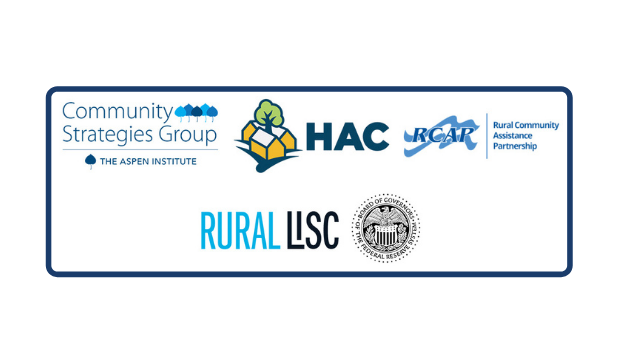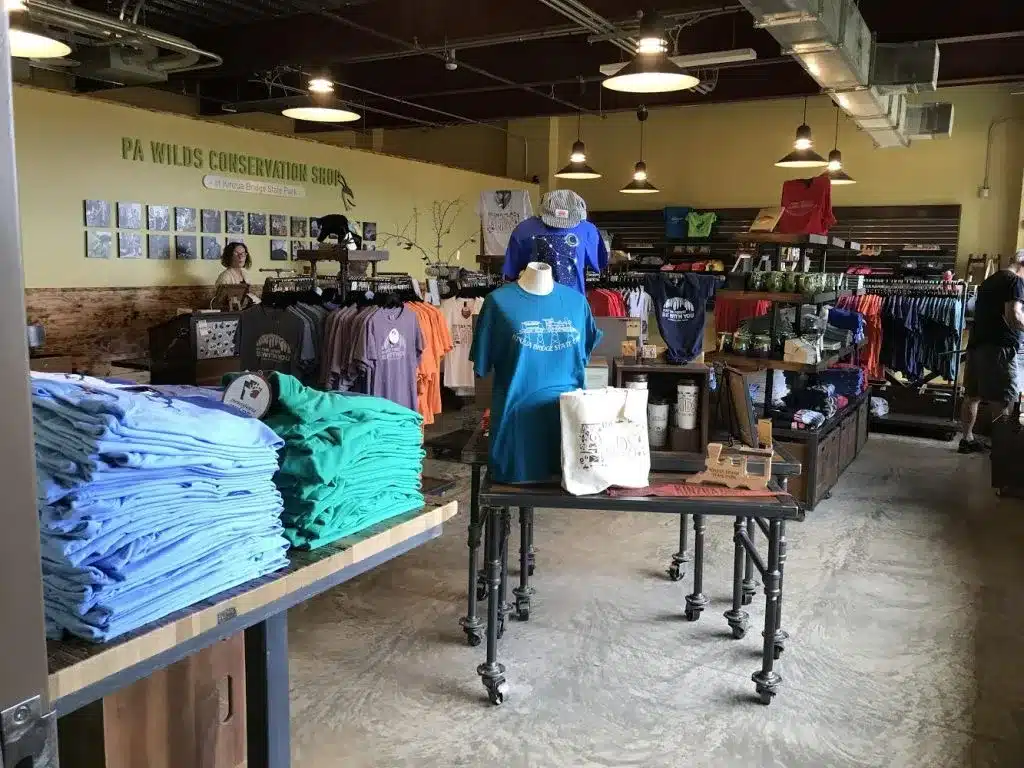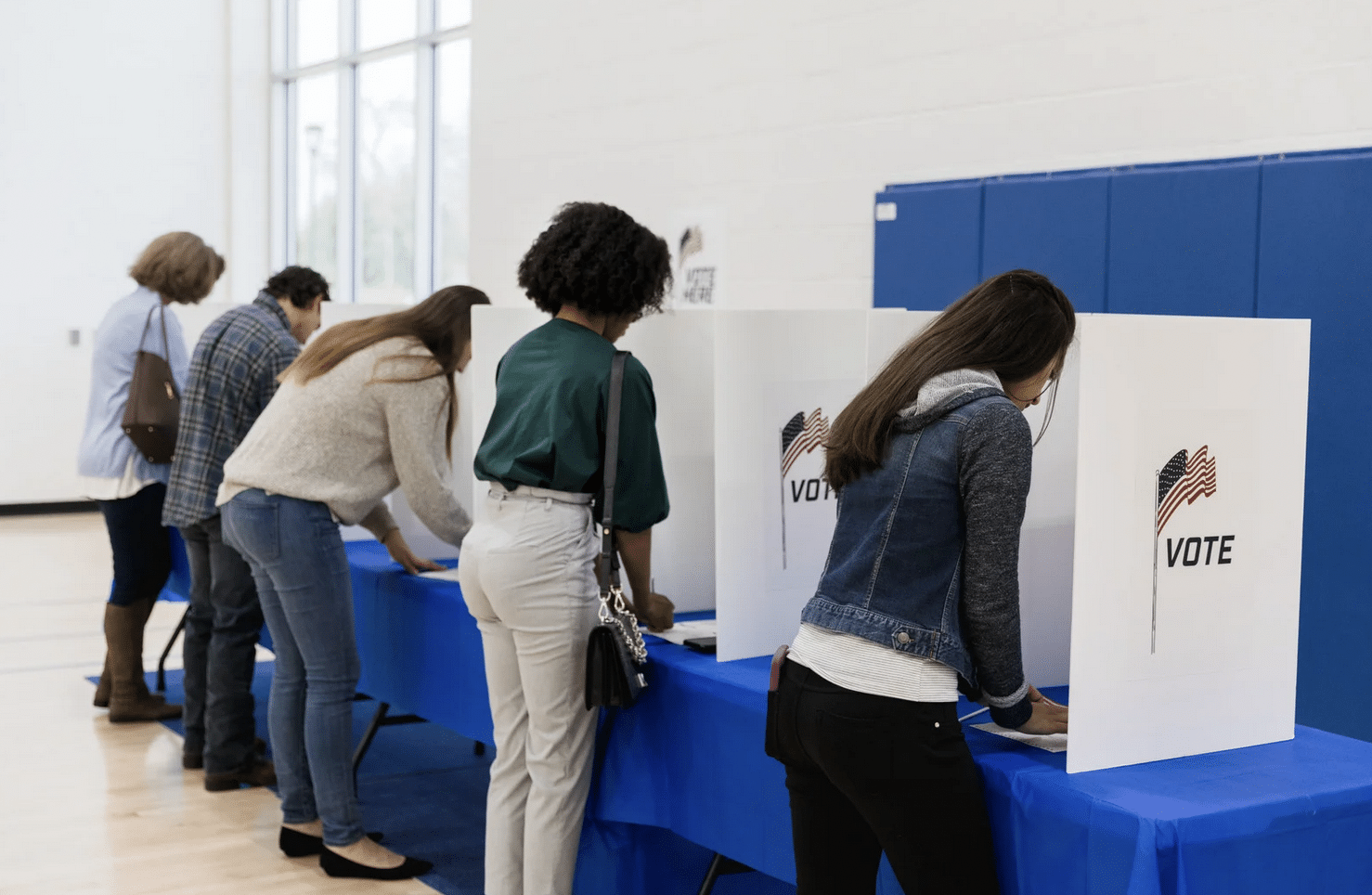Setting the scene: Over eight hundred people in the virtual room, watching and listening, sharing resources in the chat, and asking questions of the speakers. Four nationally recognized experts on rural capacity building sharing practical advice. The big question: What does it take to drive critical conversations on the issues and opportunities confronting rural America and Native nations?
The COVID-19 pandemic changed how our society worked, separating us from offices, public gatherings, and conferences that were central ways we learned and built community. Just before the pandemic outbreak, four national rural-serving organizations — Aspen Institute Community Strategies Group (Aspen CSG), Rural LISC, the Housing Assistance Council (HAC), and the Rural Community Assistance Partnership (RCAP) — were planning a national rural summit with Aspen CSG’s Rural Development Hubs report as a catalyst. Given that a national, in-person meeting was no longer possible, these organizations shifted to a collaborative virtual effort for learning, sharing, and uplifting voices of rural practitioners.

The Rural Opportunity and Development (ROAD) sessions are a multi-year series of virtual exchanges showcasing the work of on-the-ground tribal and rural practitioners in their own voices and focused on practical rural development strategies. We believe the lessons from this work can be valuable models for other collaborative efforts to share learning at the national, state, regional, and local levels.
“The ROADs collaboration speaks to the heart of systems-level change articulated in the Thrive Rural Framework. It is a coming together of organizations who want to do right by rural America and Native nations. By aligning our work and incorporating rural voices into national programming, the Sessions have made an impact on the narrative about who lives in rural America and what works to advance prosperity in rural places and tribal communities.” — Bonita Robertson-Hardy, Co-Executive Director of Aspen CSG
Aligning Leaders and the Rural Field
As COVID-19 began to hit rural communities in 2020, Aspen CSG reached out to its network in rural America regarding the health and economic effects of this shared crisis. Those voices were published in a blog, but the takeaway lesson for our ROADs collaboration was that rural people didn’t need more virtual programming. They needed higher-quality programming to watch ‘on-demand’ when time permitted it. They wanted to hear from colleagues in other communities and learn local how-tos on implementing strategies that work for rural and tribal communities, not national think-tank perspectives.
Our collaboration on the ROAD sessions arose from this desire to provide useful, accessible content for people and organizations working in rural communities and Native nations. While Aspen CSG managed the coordination of the series, each partner organization contributed valuable staff time and resources in the vetting and selection of speakers and promoted the event to their audience. Some sessions were held as stand-alone events, while others were hosted as part of a partner organization’s convening (for instance, HAC’s National Rural Housing Conference, RCAP’s National Conference, and Rural LISC’s National Seminar).
Each session included a moderated panel of practitioners relating their professional experience on a crucial rural-focused issue. The partner organizations came together at the start of 2021 to select that year’s ROAD topics, drawing on hands-on experience and awareness of the needs of rural communities. In 2022, topic areas were sharpened by post-event feedback from attendees at the previous year’s sessions. For each session, staff from one partner organization served as the thought partner for Aspen CSG staff, who provided logistical, technical, and communications support for each event. For instance, HAC provided planning advice for the sessions on rural housing, while RCAP engaged in the rural infrastructure session.
Additionally, the University of Wisconsin Population Health Institute and County Health Rankings and Roadmaps helped produce the session on rural health and healthcare. The Federal Reserve Banks of Minneapolis and St. Louis joined the effort to create the session on rural child care. All nine sessions were supported by the Robert Wood Johnson Foundation.
Overall, session topics included:
- Minority Business Ownership
- Immigrant Communities in Rural America
- Rural Housing
- Rural Health and Healthcare
- Rural Child Care
- Climate Smart Solutions from Rural Communities
- Built Infrastructure in Rural Places
- Equitable Rural Economies
- Capacity Building for Rural Organizations
Reaching consensus on topics wasn’t always easy. There are many valuable areas around which we could have convened a public discussion – and finding the right speakers and listening to their perspectives on the proposed event topic are crucial to a quality effort.
In 2022, the ROADs partner organizations had to balance staff time contributions to the effort and collectively decided to host four events – one led by each partner organization: capacity building, climate solutions, equitable economies, and built infrastructure. After reviewing the slate of events, the Federal Reserve Board reached out with the desire to collaborate on a fifth session focused on childcare because of important work underway at the St. Louis and Minneapolis Federal Reserve Banks.
A hot topic for rural folks, the session on capacity building was slated to be the first of 2022. However, it soon became clear that the framing for the event around federal capacity building programs was too narrow to be widely helpful for the field. Sadly, too few federal programs make flexible, long-term investments in rural-serving organizational capacity. Instead, we moved the event to later in the year and widened the scope to broadly showcase what it takes to grow capacity within rural and tribal communities.
“As rural stakeholders and advocates, we have often operated in siloed and fragmented spheres with limited individual capacity. The ROAD sessions have been a platform for rural community and economic development collaboration throughout the pandemic – providing diverse, robust conversations and opportunities for valuable peer exchange. In addition to building relationships in the field and expanding the rural tent, the host organizations have also used the sessions to deepen their own collaboration and learn from each other’s work.” — David Lipsetz, CEO of the Housing Assistance Council
ROAD sessions brought value to a national rural audience by carefully selecting rural speakers with replicable insights to share and learning from audience feedback. The organizing group processed attendee comments and suggestions for each session, highlighted what had worked and what didn’t, and implemented improvements in the design and execution of future events.
Over the entire series, 97% of attendees who responded to a post-event survey said the session they attended was either Good or Excellent, and 90% felt that the session they attended added value to their work. Registration increased over the nine sessions, with an average of 800 people registering for each session and many registering for multiple sessions. The final session to date had the largest number with over 1,200 people registering to attend.
“The ROAD Sessions have been a great opportunity to raise important issues and opportunities facing rural and tribal communities across the United States while showcasing how important collaboration is in this space. While at RCAP, these conversations had a huge effect on our work and in raising the voices of the communities we served. Now at the IEDC, I am excited to continue to engage and partner on the ROAD Sessions, and to see all that is ahead for this partnership.” — Nathan Ohle, CEO of the International Economic Development Council (IEDC) and former CEO of RCAP.
Attention to Place, Race, and Class as Foundational
Each session showcased stories from a wide geography so that attendees heard innovations and lessons from Appalachia to Louisiana’s Gulf Coast, from the Pine Ridge Reservation to the Pacific Northwest, and many places in between. Being inclusive of the geographic variety of rural America was critical, as was acknowledging the current and historical effects of persistent poverty and systemic discrimination. These are the foundational elements of the Thrive Rural Framework, which seeks to create a common understanding of how to advance rural prosperity.
“Equity is our primary aim for these sessions. It is not sufficient to just share innovations and lessons useful for rural people and places; we literally must show the diversity of rural America. Each session has speakers from Native nations, Black and Latino communities, or persistent poverty communities because sharing success stories from these places demonstrates the power of rural places when resources, leadership, and momentum come together.” — Nadia Villagrán, Program Director, Rural LISC
Recent census data shows that rural America is rapidly diversifying, and rural areas with the most expansive growth over the past decade have benefited from their diversifying population. The ROADs partnership achieved the goal of reaching a diverse BIPOC audience while also providing a national platform for BIPOC voices to be heard and seen. Over the nine sessions, more than 60% of the speakers were people of color, including 10% of speakers who were from Native nations.
“[For future events] I’d be happy to continue diving into the theme of minority populations in rural areas. I don’t think it gets enough attention, especially outside of our sector. BIPOC in rural places aren’t really in the common imagination of what rural America is.” — Anonymous Attendee
“I work in rural community media, and it’s important to be able to see the deep organizing happening around equity and inclusion on a systemic level…it’s exciting and validating to know that our decentralized work is going strong!” — Anonymous Attendee
We recruited speakers through a multi-stage process: during the event planning kickoff meeting, the ROADs partners would brainstorm potential speakers to identify those who would bring place, race, and class diversity to the discussion. If there were gaps, we’d reach out to friendly organizations or key leaders in a region to ask them for help identifying great speakers who would bring that diversity to the stage.
Aspen CSG staff then set up screening calls with potential speakers to learn about the practical innovations and lessons they would share. The planning group would then propose a slate of speakers with a wide set of perspectives on the issue. Once approved, Aspen CSG staff would work with all panelists to ensure they were prepared for the event. This rigorous and thorough generation and vetting of speakers ensured quality programming.
Together the speakers’ stories showcased the geographic diversity of rural America while focusing on tips and techniques for driving community prosperity, including helping those living on the economic margins. While individual session registrations varied in number, each session saw registrations from nearly every state, dozens of Native nations, and often had international registrations.
Creating a National, Rural Audience
The ROAD sessions were not just one-way communication. A crucial design component of each virtual exchange was the post-event breakout room discussion. Attendees would meet the panelists, share their own stories, and network with folks in their geographic region or area of interest. Our initial impulse was to use breakout to collect feedback on the session topic. However, through experience and post-event surveys, we learned that what our audience wanted was an open platform to network and learn from other rural people. So, that’s what we implemented going forward. One attendee noted, “Presenters were very high quality, and the breakout room discussion was honest and direct, and folks authentically reflected the challenges of this work in rural communities.” Another said, “the most important aspect of this virtual exchange was to have authentic speakers that live and work in rural places share their experiences.”
Following the first year of sessions, the collaboration added the Federal Reserve Board as a partner. With their help crunching the numbers, we understood more about our audience. In 2022, we started collecting optional self-identification data from our registrants, including gender, racial, and ethnic identification. While each event had different attendees, we learned that, on average, one-third of our audience self-identified as Indigenous, Black, Hispanic, or Asian, with many people selecting multiple racial and ethnic groups. Knowing the demographics of our audience is a crucial indicator of reach and inclusion.
“The ROADS collaboration has created tremendous value by bringing together and raising up the voices of diverse, cross-sector rural community leaders. Through our efforts together, we have learned and helped others learn about some of the critical issues facing rural communities, as well as practical, on-the-ground strategies for how local leaders can turn those challenges into opportunities.” — Andrew Dumont, Senior Community Development Analyst at the Federal Reserve Board
A big win of ROADs is creating a collaborative virtual platform for rural people to tell their own stories to a national audience, including government and philanthropy. The plurality of attendees was from non-profit organizations, but on average, 25% of session attendees came from federal, state, and tribal governments, and 9% were from philanthropic organizations. Overall, the ROAD sessions infused practitioner stories and lessons into rural narratives, policymaking, and practice across the country and strengthened the network of organizations serving rural communities and regions.
A Future Down the ROAD
This work by the ROADs partners is just the start. As a collaborative, we look forward to continuing to engage our audience through stand-alone virtual exchanges like the ROAD Sessions and larger virtual and in-person convenings as time and resources permit.
“I work for a tribe and have lived experience in building trust and capacity with outside organizations and governments…to move forward and make change, we need to alter the narrative of failure and reinterpret that past to create a new vision for change for the future.” — Anonymous Attendee
We invite all those interested to learn more about our collaborative work on equitable rural prosperity and get involved. Send a message to devin.deaton@aspeninst.org to start a conversation or share your rural opportunity and development story.







